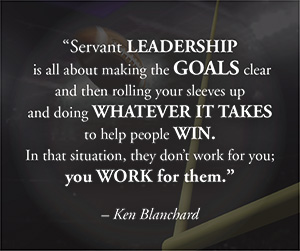 As summer winds down and 4th quarter gears up, the Executive Leadership Team at The Cirlot Agency turns its attention to … football. Wait, leadership. Well, great football requires exceptional leadership, so there.
As summer winds down and 4th quarter gears up, the Executive Leadership Team at The Cirlot Agency turns its attention to … football. Wait, leadership. Well, great football requires exceptional leadership, so there.
Honestly, we do love our football around here. We have our good-natured ribbing among rivals, and camaraderie among fellow fans. But we all know this season brings our own 4th quarter push and final sets of downs to bring about victory for our clients and ourselves.
So, how do we keep momentum going and motivation high? What can be done to instill a “finish strong” attitude? With so much going on, how do we keep our attention on our finest asset – our team? We know we are not alone in this. Many companies face the same 4th quarter challenge. So, we’d like to share with you a bit of our philosophy on leadership and keeping focus.
 Robert Greenleaf may be the father of modern servant leadership, but he based his 1970 essay, “The Servant Leader,” on biblical truths. The former AT&T executive advocated that leadership should put others first, including employees, customers and community. We at The Cirlot Agency subscribe to this belief, and strive to put Greenleaf’s principles into action each day.
Robert Greenleaf may be the father of modern servant leadership, but he based his 1970 essay, “The Servant Leader,” on biblical truths. The former AT&T executive advocated that leadership should put others first, including employees, customers and community. We at The Cirlot Agency subscribe to this belief, and strive to put Greenleaf’s principles into action each day.
Ten Characteristics of a Servant-Leader
Larry C. Spears, who served as President & CEO of the Robert K. Greenleaf Center for Servant Leadership, identified ten characteristics of a servant leader as follows:
- Listening: Servant leaders must listen and interpret what others are saying, as well as to their inner thoughts and feelings.
- Empathy: A servant leader “assumes the good intentions of co-workers and colleagues and does not reject them as people.”
- Healing: Servant leaders “help make whole” the people with whom they come in contact.
- Awareness: Servant leaders should “view most situations from a more integrated, holistic position.”

- Persuasion: Rather than using coercion, servant leaders should rely on the technique of convincing.
- Conceptualization: Servant leaders look beyond the day-to-day to visualize solutions.
- Foresight: Servant leaders understand “lessons from the past, the realities of the present, and the likely consequence of a decision for the future.”
- Stewardship: Servant leaders show “a commitment to serving the needs of others.”
- Commitment to the growth of people: Servant leaders are “deeply committed to the growth of each and every individual within his or her organization.”
- Building community: Servant leaders should “seek to identify some means for building community among those who work within a given institution.”
Whether a business leader, a parent, or a coach, these characteristics define how we should all deal with one another, and how we should approach each task. As a final thought, we couldn’t leave out one of the NFL’s greatest-ever quarterbacks, and fellow Mississippian:
 Well said, Brett. We couldn’t agree more.
Well said, Brett. We couldn’t agree more.

